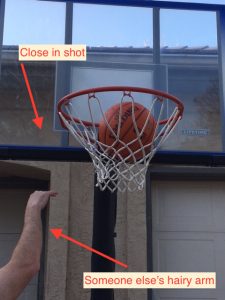I like to think I’m pretty coachable. I’ve had many great coaches over the years who helped me learn new skills, hone latent talents, and navigate bumpy transitions. For me, the lessons that landed best were short, easy to remember ideas that I could repeat as a mantra in my head.
Let the Boat Pull you Up
Anyone who has ever tried to water ski will recognize this essential coaching tip of using the power of the boat to advantage. Almost every newbie to the sport makes the same rookie error: trying to use the rope to pull themselves up out of the water when the boat takes off. The result is always the same – face plant.
The first time I tried waterskiing, I was about 9 years old. A wealthy neighbor took several of us out on the Fox River (yikes!) and taught us to water ski. Seven times he pulled the boat around after each face plant, throwing me the rope, giving me the same coaching, “Let the boat pull you up.” The eighth time, the message finally stuck. I loosened my grip, sat back in the water and let the power of the boat pull me up. Exhilarating. Slow learner, yes. But after that, like riding a bike, I could water ski. Each time I sat in the water, waiting for the boat to take off, I would repeat to myself: Let the boat pull you up.
It’s Just Two Turns
I took up snow skiing as an adult and have never taken a lesson. I am an average skier – comfortable on the easy slopes and can manage some intermediate runs on a good day. The two fundamentals of snow skiing are that being able to execute a turn is as important as being able to stop.
A few years back I went skiing with a group of friends who were all much more experienced than I. We spent most of the day on different parts of the mountain but chose to ski a few runs together after lunch. I was trying to convince myself that I could keep up, but we finally got to a spot on the trail that stopped me cold. We were on a ridge that was so steep I couldn’t see what was below me. The tips of my skis hung over the precipice. Without training or confidence I didn’t feel I had the tools to move forward without risking injury. I contemplated taking my skis off and sliding on my rear to make it down the steep slope. In my ear, my good friend whispered to me, “Donna, it’s just two turns.” “Just two turns?” I asked. “Just two turns.” I pushed off, making the first turn. I immediately forced my skis into a second strong turn. Once I made the decision to point my skis towards the bottom of the mountain, my only option was to make the first hard turn and then the second. I safely made it to the next ridge where I repeated this same trick I’d just been taught. Since that time, my confidence on harder runs has improved as I repeat the mantra: It’s just two turns.
Make 10 in a Row
When I was on the high school basketball team, I liked to practice shooting from the 3-point line – the impressive arc of the ball from that distance and the affirmative swoosh was an adrenaline rush and ego booster. Of course, the Hail Mary shot from half court while counting down the imaginary end-of-game clock was another favorite way to mess around instead of doing drills.
My coach had other ideas. One drill she insisted on was my least favorite: We had to start just about a foot from the basket and make ten shots in a row before we were allowed to take another step backwards. Ten in a row, one step back; ten in a row, one step back. Miss a shot; start over. I hated that drill. So boring. I also hated it because it was very hard to make ten in a row from the same spot. The allure of stepping back, making progress, getting to the next spot distracted me from the task at hand. But I did it. Over and over again. For four seasons. Make 10 in a row first.
Each of these phrases: Let the boat pull you up, It’s just two turns, and Make 10 in a row are short phrases that are easy to keep in front of me in the moment. Through my neighbor’s patience, I learned that I could succeed after multiple failures. I also learned to notice when I am resisting what is. The boat’s engine will always be more powerful than my pitiful forearms. From my friend’s expertise on the ski slopes, I learned that if I listened, I could learn something new in the moment from someone more experienced than I. And from my basketball coach I learned the fundamentals of perseverance, discipline, follow through, and taking care of the ball.

Questions I ask myself when I feel myself being coached:
Does this person know more about the situation at hand than I do?
Do I trust this person?
What do I gain by resisting their coaching?
What will I gain if I listen?
Am I resisting what is?
Recommended Reading:
Start Where you Are: A Guide to Compassionate Living/Pema Chodron
An official career coach recommended this book to me many years back. It was quite a puzzle at first but I’ve returned to it again and again. It is gentle nudging towards accepting what is in the world and in myself.
Pitch Perfect: How to Say it Right the First Time, Every Time/Bill McGowan
This isn’t a great book, but it offers many helpful coaching tips that are easy to remember. Sometimes a simple phrase makes all the different in a tense moment. For me, it’s the Mona Lisa smile.

May 13, 2016 at 3:16 pm
Donna, Thank you for sharing your real-life stories. Your creative non-fiction approach, including these examples, really speaks to me. If you had included the concepts and tips without your truths, I probably wouldn’t be thinking so personally and deeply about coaching for myself and the team. Honestly, the Make 10 in a Row (with somebody caring and paying attention over time) took me to such a new and higher level of understanding when I was learning about reading intervention. Thank you for reminding me to identify a simple, clear concept (2 turns) and then to stick with it over and over again!
April 18, 2016 at 8:17 pm
I come back to this blog because I’m drawn to it for the personal growth I can have as an individual and for the nuggets I can take away from each of the blog posts to use it in my professional life on a regular basis. What stands out to me in this blog is once again the rich self-reflection pieces. The blog has such a way of using self-reflection as an enrichment exercise by connecting experience with lessons learned.
The coachable moments interspersed with the coaching messages given. The willingness and readiness to be coached and the willingness and readiness to examine resistance to coaching.
I’ve not heard of the titles posted in this blog which is like being given a treasure to discover.
Another great post. Thank you.